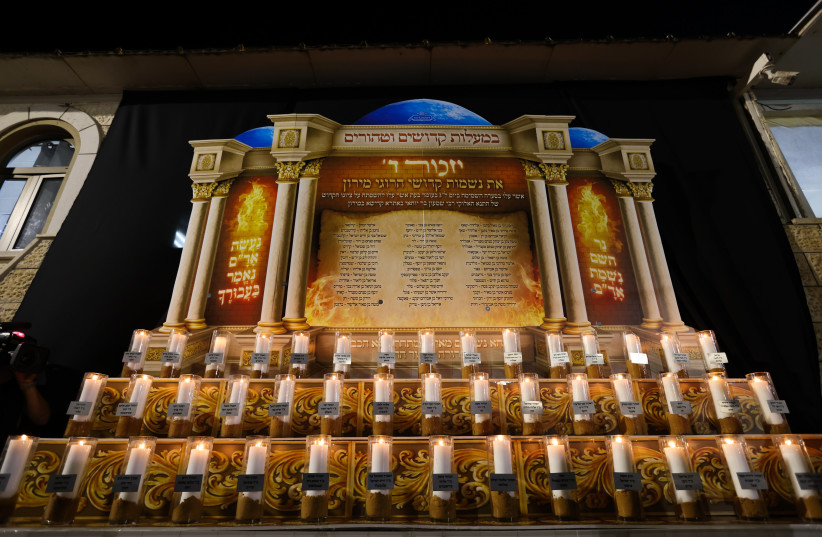Former interior minister Arye Deri testified on Thursday that he had no authority in dealing with last year’s Lag Ba’omer tragedy on Mount Meron.
Deri was repeatedly pressed to take responsibility by state inquiry members Judge (ret.) Devorah Berliner and Maj.- Gen. (res.) Shlomo Yanai, who noted that the Interior Ministry has certain powers over the religious holy places task force as well as over certain local municipal activities.
In addition, the inquiry pressed Deri about documents that showed he had numerous meetings with officials involved in the Lag Ba’omer plans for Mount Meron, in which he got deep into the details regarding budgetary issues and questions about safe access for traveling to the site.
The problems were there before
Despite all of these questions, Deri maintained that he was never aware of, or had any authority over, the safety of the structures themselves on the site.

What did Deri know?
Deri drew a distinction between getting involved in enhancing safety for traveling to the site versus the safety of the structures at the site themselves.
Moreover, Deri said that he had not visited the site in several years, since 2015 or 2016.
Although the government had several meetings with the police, the public security ministry, and other officials about safety, Deri maintained that these meetings focused only on the question of corona and whether the government should or could impose limits on the number of attendees.
According to Deri, he was not opposed to placing limits on the number of attendees, but the police told him that there was no middle option for doing so, such that the only choices were closing the site completely or leaving it completely open.
Yanai surprised Deri at another point, telling him that his ministry was responsible for rickety unsafe structures, even if others were responsible for illegally built structures. Deri pleaded ignorance on this issue.
What did the other side have to say?
In contrast to Deri’s narrative, several police officials and other officials involved with the site have said that they were heavily pressured by the political echelon, including Deri and former public security minister Amir Ohana, to ignore any related safety issues in order to facilitate the maximum number of attendees.
The politicians themselves were under pressure to maximize the number of attendees in 2021 given that the pandemic had led to the event’s cancellation in 2020.
Deri and others have said that overall responsibility for safety issues falls on the police or the relevant engineering officials.
Ohana said earlier this week that he was concerned when he saw the status of the structures on the mountain, but that he was told that they had all the appropriate sign-offs from relevant safety officials.
It was unclear if the state inquiry members would accept the two former ministers’ explanations, or would place on them some significant degree of responsibility for the tragedy.
